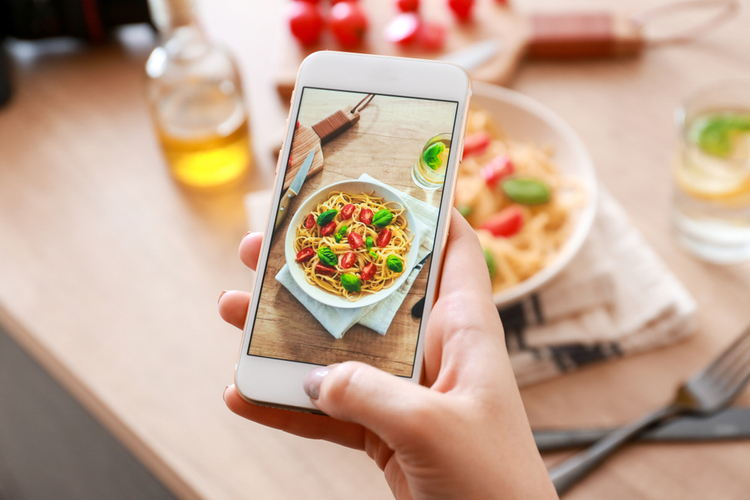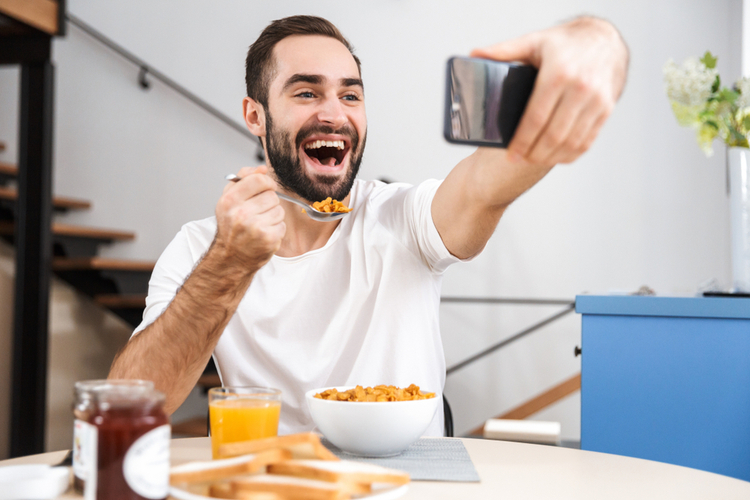Three Best Food Journal Apps Without Calorie Counting




See How You Eat and 80/20 Coach
This app is easy to use and can help you to be more mindful of your food choices and portion sizes. WIth its focus on photos, it’s perfect for visual learners.
Some of the useful features are in-app purchases. Some users aren’t thrilled with the format.
If you want to be more aware of what you’re eating and how much, these two companion apps are great choices. They’re designed to work hand-in-hand to help you be more mindful.

Ate Food Diary + Habit Tracker
This app records photos of your meals and snacks. It asks you to reflect on why you ate, leading you to a better understanding of your motivation.
Many of the premium features are paid-membership only. Users report minor annoyances with the structure of the app.
This app is another clear winner. It’s easy to use and allows you to be more thoughtful about your choices.

Cara Care
This app is geared toward users with digestive issues, like IBS or GERD. It’s useful for tracking trigger or problem foods.
Many features are paid-only. If you don’t suffer from digestive problems, it won’t be of much use to you.
If you’re coping with GI issues, this app may be a good choice for you. It’s an easy way to see how your food choices correlate to your symptoms.
We may earn compensation from the products and offers mentioned in this article. However, any expressed opinions are our own and aren’t influenced by compensation. To read our full disclosure, click here.
Why Should You Use a Food Journaling App?
You may be wondering what the point of food journaling is if you aren’t going to count your calories. As it happens, food journaling has a number of other excellent health benefits. Here are a few reasons you may decide keeping a food journal is a good daily habit for you.

- You’ll see where your usual diet might be lacking in terms of nutrition. Do you eat enough lean protein every day? Are you getting enough fiber to keep your gut happy? Your journaling will reveal any gaps in your diet, allowing you to adjust your meals accordingly.
- You’ll have a better understanding of your snacking habits. Do you choose filling and nutritious snacks when you’re truly hungry, or do you reach for junk because you’re bored or stressed?
- You’ll learn more about the portion sizes you’re choosing. It’s fine to enjoy foods like crackers and pasta in moderation. Are you piling your plate with more carbohydrates than necessary? Could you replace some of them with whole fruits and veggies?
Next, we’ll check out some of the nifty food journaling apps you might try.
Your 3 Best App Choices
See How You Eat and 80/20 Coach
If you’re new to food journaling or are a visual learner, the See How You Eat app is a good place to start. You record your meals and snacks by snapping photos of them with your smartphone, and these photos become your journal entries. It’s linked to an 80/20 Coach app by the same developers that can help you to improve your food choices and portion sizes. Both apps are free to download; many advanced features are available as in-app purchases.

Ate Food Diary + Habit Tracker
Like, See How You Eat, the Ate Food Diary + Habit Tracker app tracks your food via the photos you upload. You’ll spend a few minutes reflecting on what you ate and why which can lead you to be more mindful of your food choices. If you’ve ever explored the benefits of journaling for mental health, think of the Ate app as a mental health journal dedicated specifically to your eating habits. The app itself and its basic features are free, with the option to purchase a premium membership.

Cara Care
If you’ve ever experienced symptoms of a food allergy or sensitivity, the Cara Care app may be a lifesaver for you. The focus of this app is your body’s response to what you’re eating, especially as it applies to your gut health. Do you struggle with issues like bloating, constipation, or heartburn? Tracking your meals and snacks on Cara Care can help point to eating patterns that may be problematic for your GI tract. If you’ve been diagnosed with IBS, IBD, Crohn’s, GERD, or another digestive disorder, Cara Care can help you to get your symptoms under control. It’s free to download, with many in-app purchases available.

How Can You Develop Healthy Eating Habits?
Your relationship with food can be complicated. You know it’s important to make good choices and watch your portion sizes, but are treats ever allowed? When you indulge in something, how much is okay? With all the (often confusing) information out there, it can feel difficult to keep a positive mindset about your diet.

To be honest, when it comes to building and maintaining a healthy outlook on eating, each person’s needs are unique. What works for one person may not be useful for the next. It’s a matter of experimenting to see what helps you to eat well and feel good about your choices. In addition to the food journaling apps I’ve mentioned, here are a few other strategies to explore.
- Commit to eating mindfully. Turn off the TV, put away your phone, and be present in the moment as you dine, enjoying each bite.
- Rather than depriving yourself of your favorite foods, enjoy them in moderation. Try not to label foods “good” or “bad.” Denying yourself treats can tempt you to throw in the towel and binge on them.
- Check out the USDA’s MyPlate guidelines for balancing your portions from each food group. You can download a free app with simple tips like moving to fat-free or low-fat milk and dairy foods.
- Try shopping for your weekly groceries online. You may be less likely to make impulse junk food purchases, and you could save some serious cash too.
When you’re planning to dine at a restaurant with family, coworkers, or friends, check out the menu in advance. It can be easier to choose a healthy and satisfying dish when you’re not busy socializing. But once you do get to the table, relax and enjoy!
There’s no right or wrong way to manage your healthy diet. Is there a particular tip you’d like to share with other readers? Let me know in the comments section.
Stay well, and enjoy eating a variety of healthy and delicious foods!







